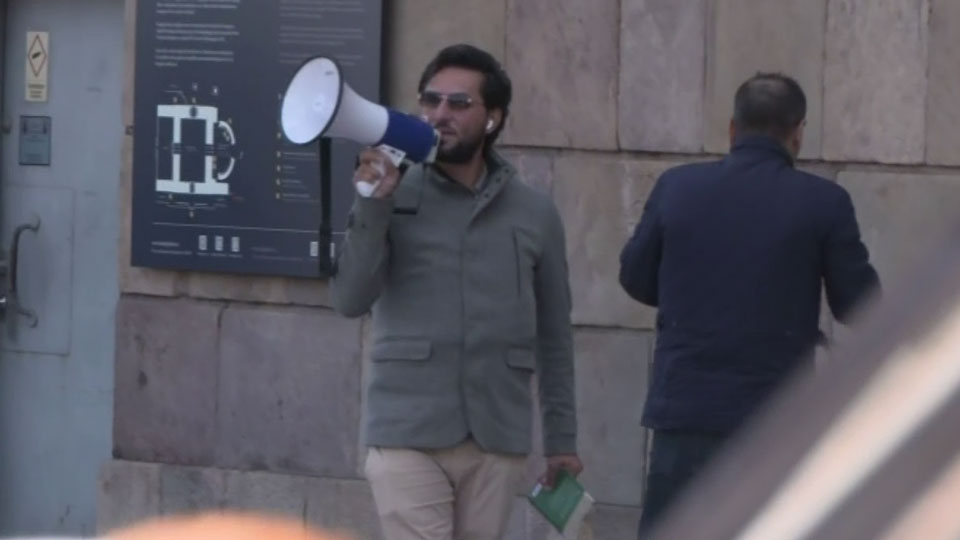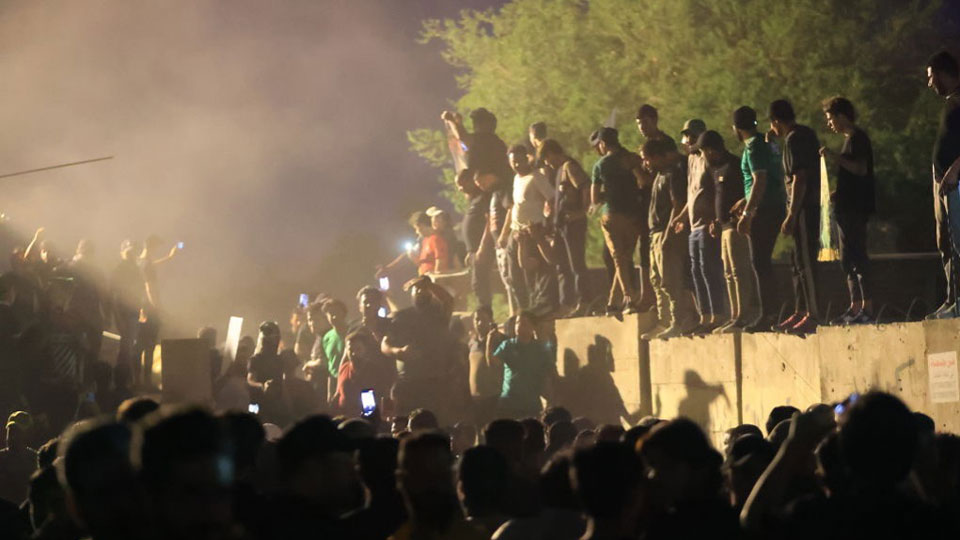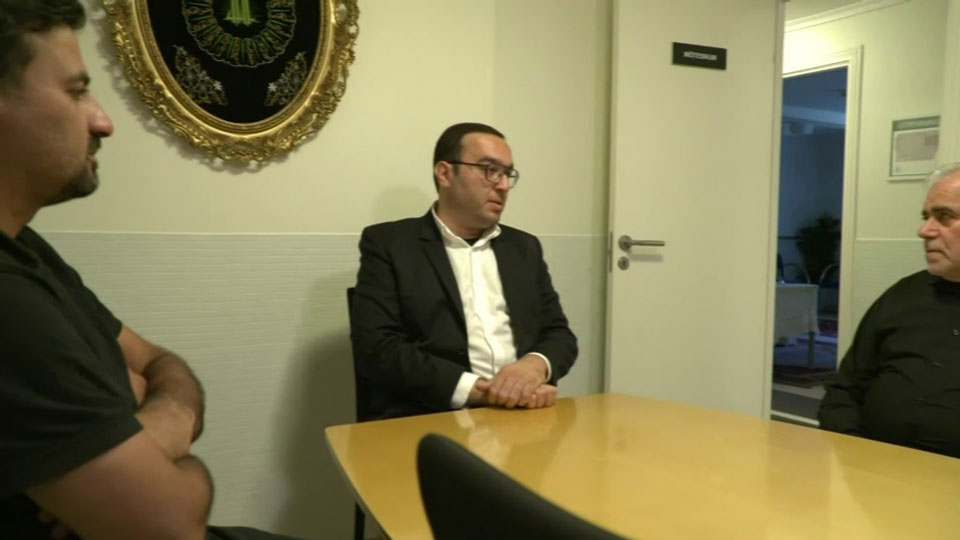In early September, police in the southern city of Malmo arrested three people who violently opposed a public burning of the Islamic holy text. The previous month, the Swedish Security Service raised the terrorist threat to "high" ― the second highest level ― for the first time since 2016.

Quran burnings have also been happening in Denmark. But the extent of Sweden's freedom of expression laws means Swedish authorities have found the controversial public displays much harder to stop.

"This is terrible," said one onlooker at a recent demonstration. "This is against humanity. The [instigator] is very dangerous, and this action is making problems for minorities here. I'm living in fear."
Most Swedes also disagree with the Quran burnings. More than half of the respondents to a recent poll by Sweden's public broadcaster SVT said they favor a ban on burning holy books such as the Quran.
Nonetheless, the anti-Quran demonstrations have caused anger in the Middle East. In June, hundreds of protesters stormed Sweden's embassy in the capital of Iraq, Baghdad.
Since then, multiple predominantly Muslim nations – Iran, Morocco, Kuwait, Jordan and the United Arab Emirates – have responded by refusing to send a new representative or recalling their ambassadors.

Security concerns at home
Many Swedes worry about the impact of the anti-Quran protests on the Muslim community, which comprises about 8 percent of the population. The Quran, unlike some other religious texts, is seen by believers as the direct word of God.

"We encourage a zero-tolerance approach towards hate crimes and burning religious scriptures," said Akil Zahiri, spokesperson for the largest organization for Shia Muslims in Sweden. "There shouldn't be any room in a society for this kind of action."

In January, a far-right politician with dual Danish and Swedish nationality burned the Quran in both countries.
The most recent anti-Quran protesters are reportedly of Iraqi-Christian origin. They intend to continue burning the holy book to protest its content.
Sweden's government has responded by calling the protests "Islamophobic," and saying it condemns the provocations.
But authorities have continued to allow the protests. Under national law, the demonstrations are viewed as permissible religious critique.
"Today it's legal to burn the Quran or the Torah or the Bible because the starting point in all policy discussions in Sweden is a presumption for freedom of expression," explained Marten Schultz, Professor at Stockholm University.
"Sweden has the most far-reaching protection of freedom of speech in the world. It's even stronger than the United States."

Protesters have a disproportionate impact
The threat of terrorism by extremist groups is attracting significant global attention. But Swedish Muslims are feeling the effects of the burnings in their daily lives.
"We receive phone calls, emails, and are contacted by members expressing both fear and anxiousness," said Zahiri.

Up-to-date statistics on discrimination faced by the Muslim community are not available. However, an agency of the Swedish Ministry of Justice found that around 80 percent of interviewees had experienced Islamophobic hate crime in a report from 2021.
This coincides with a shift to the right in politics in Sweden, another concern for the Muslim community. Such right-leaning politicians could also obstruct efforts to change legislation.
"I think [the demonstrations are a] provocation," said an 80-year-old Swedish woman. "It's not really about free speech but we can't stop them. So, we're trying to change our fundamental laws and that's difficult when they've been there for hundreds of years."
External threats
Perhaps the most pressing external security concern stems from Russia's war in Ukraine.
The war caused Sweden to make a drastic shift away from its long history of neutrality by applying to join the North Atlantic Treaty Organization (NATO).
Their application was opposed by Turkey, a Muslim-majority nation and NATO member. Istanbul has since signaled it will approve Sweden's application in the coming months, but the Quran burnings continue to stall progress.
Complicating matters, Sweden's government is also concerned about the spread of "disinformation" on social media regarding the Quran protests. It suggested "Russia-backed actors" are involved.
Solving the issue?
By raising the terrorist threat level to its highest in seven years and strengthening border controls, authorities have taken some steps to address security issues.

Most importantly, the Swedish government in August announced a review of its Public Order Act. The panel will investigate whether Sweden's security can be considered when granting or denying a protest ― such as the Quran burnings.
But the current balance of power in parliament could make that difficult.
Prime Minister Ulf Kristersson's Moderate Party is currently in a coalition with the Sweden Democrats, a far-right party. The Prime Minister will need their support to get the legislation through ― and that backing is not guaranteed.
The government is expecting the panel's final report next July, but hopes to apply the laws temporarily before legal changes are finalized.
In the meantime, the Swedish Agency for Support to Faith Communities is working with Swedish Muslims and other religious groups.
"We have this long tradition that freedom is freedom for minorities and for all Swedes ― it's important we can preserve that. And to make people feel safe, we need to work together as a country," said Isak Reichel, the Agency's director.

As Swedes wait for new legal measures, many are calling for constructive action that safeguards Sweden's diverse population while maintaining the country's centuries-old freedoms.

